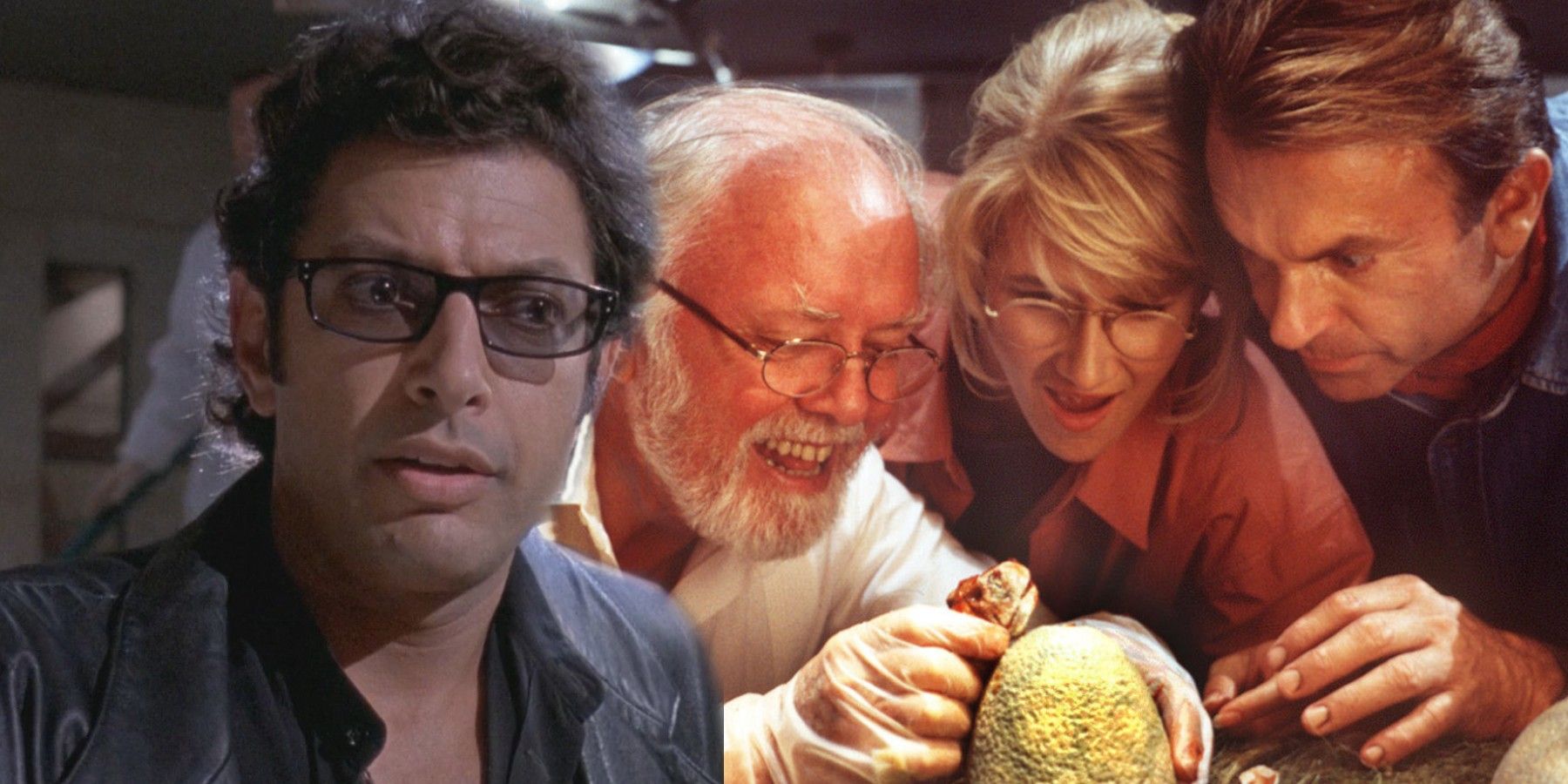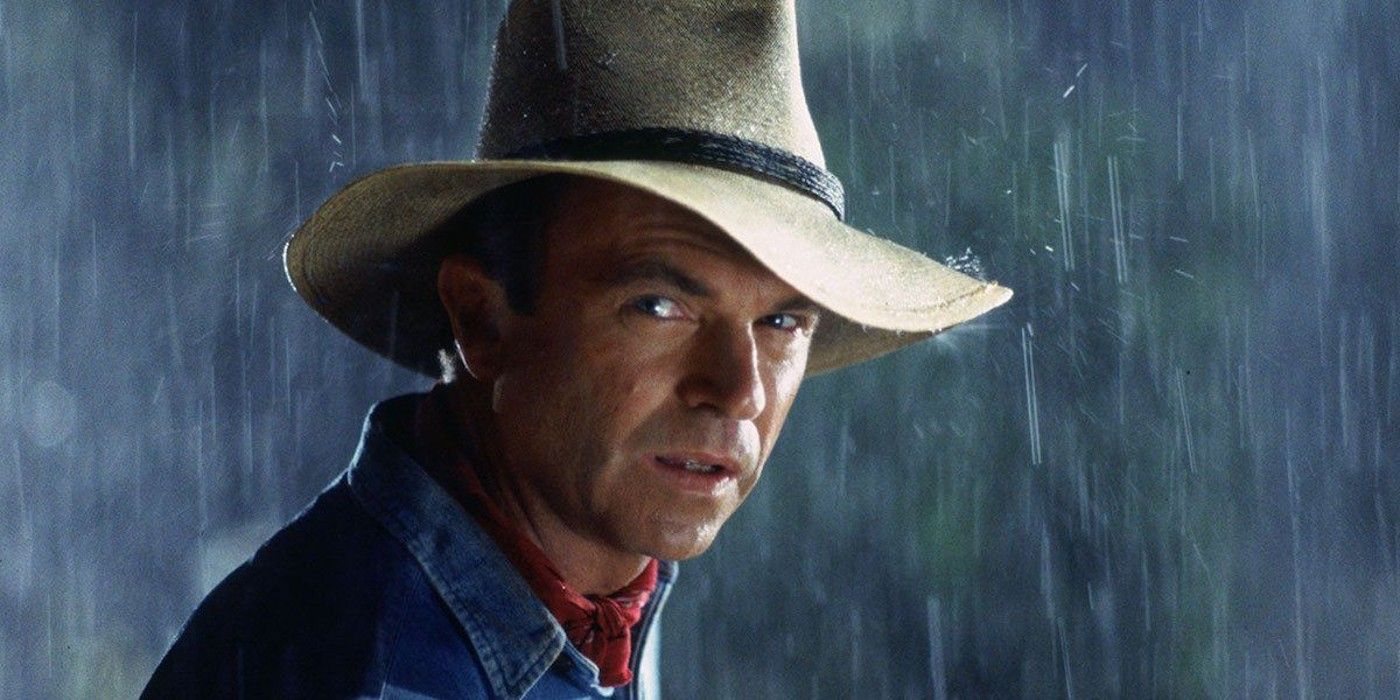In Jurassic Park, Ian Malcolm famously declares that “life finds a way,” but the truth of his statement is foreshadowed in a small detail early in the movie. Despite being a brilliant mathematician, Ian Malcolm (Jeff Goldblum) does not conform to the typical stereotype. John Hammond (Richard Attenborough) describes him, to Donald Gennaro (Martin Ferrero), as being blessed with an abundance of personality that makes him more like a "rock star." In this way, Malcolm acts as a counterpoint to Jurassic Park’s main protagonist, Alan Grant (Sam Neill), who is far more introverted and awkward despite his undoubted excellence and expertise as a paleontologist.
As in Michael Crichton’s original Jurassic Park novel, Ian Malcolm acts as a mouthpiece to the action as it takes place. More than this, he uses the ideas that underpin his mathematical chaos theory to successfully predict the events of the movie. Specifically, he refers to his belief in the inherent unpredictability of nature despite human attempts to control it. This is given its clearest expression after Jurassic Park geneticist Henry Wu (B.D. Wong) explains how dinosaur births are controlled. Malcolm replies that this control is an illusion and that science has often shown that “life finds a way.”
Obviously, the events of Jurassic Park and its sequels prove Ian Malcolm’s statement to be true. However, a literal interpretation of this is suggested even earlier on in the movie. In the helicopter scene, when they first arrive on the island of Isla Nublar, Alan Grant struggles to put his seatbelt on due to only having two “female” ends instead of a “male” and a “female” needed to secure the belt. Despite this, he finds a solution to his survival by tying the two straps together to hold himself, albeit unsafely, in the helicopter. This sequence acts as a close metaphor for a guiding principle of Jurassic Park’s plot.
How “Life Finds A Way” In Jurassic Park
In Jurassic Park, Henry Wu reveals that all the dinosaurs in the park are genetically female. By doing this, he believes that they can harness control of the animals, but it is soon revealed that his confidence is misplaced, and the dinosaurs find a way to reproduce. This reflects the same principle as the seatbelt managing to do its job despite only having two female ends.
Ian Malcolm recognizes the theoretical principle of why Jurassic Park’s attempts to control the dinosaur population are doomed to fail. However, while traveling through the park with John Hammond’s grandchildren, Tim (Joseph Mazzello) and Lex (Ariana Richards), Alan Grant works out the scientific reason for this failure. He discovers dinosaur eggs and realizes that Malcolm’s theory is correct. Having learned earlier in the lab that frog DNA is used to fill in the gaps in the dinosaur’s genome, Grant recalls that some West African frogs can change their sex in a same-sex environment. Evidently, this ability has also been transferred to the dinosaurs.
All of this is caused by human arrogance, which is a theme that runs through the entire Jurassic Park franchise. In many ways, all of the Jurassic Park and Jurassic World movies show that this arrogance is only matched by human ingenuity and the ability to survive. This may even help to explain why so many of the characters have steadfastly refused to learn from the events and mistakes of each previous movie. Even so, this remains hard to forgive due to Jurassic Park and its sequels consistently proving Ian Malcolm to be correct. After all, it is much harder for humans to tame the chaos of the natural world than it is for Alan Grant to fix a faulty seatbelt.


